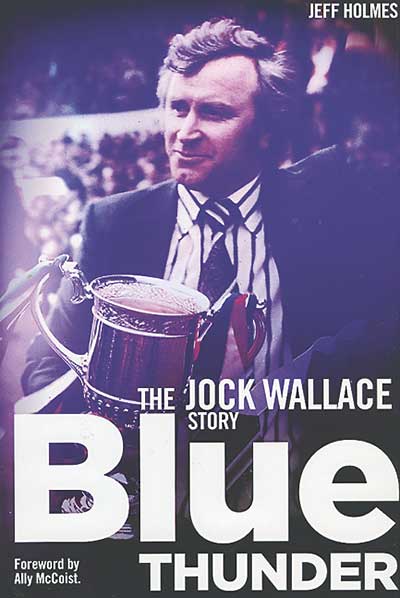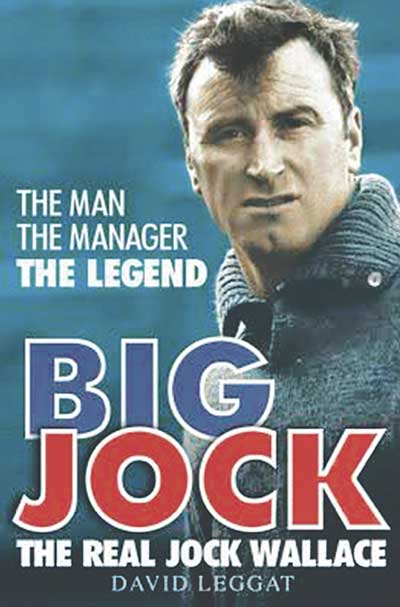
 Blue Thunder
Blue Thunder
The Jock Wallace story
by Jeff Holmes
Pitch Publishing, £17.99
Big Jock
The real Jock Wallace
by David Leggat
Black & White, £9.99
Reviewed by Ian Plenderleith
From WSC 347 January 2016
Jock Wallace was the manager of Rangers from 1972 to 1978, and is revered at Ibrox for leading the club to two trebles that ended a decade of dominance by Jock Stein’s Celtic. In the 1980s he returned for a second, less successful, spell at the club. He is also famous for making his players run endlessly up and down the sands of Gullane, a costal town east of Edinburgh.
This pre-season ritual on “Murder Hill” is mentioned dozens of times in both of these books to signify that Wallace was a tough but fair disciplinarian in the traditionally gruff Scottish mould, who did what was necessary to get the best out of his players. Murder Hill is cited so often as Wallace’s trademark fitness routine that these books leave you feeling like an out-of-shape ’Ger in his first week of training after the summer break – exhausted from the laborious, tedious repetition.
Both books are “hackiographies” – template biographies written by tabloid football reporters. Jeff Holmes is a lifelong Rangers fan, and David Leggat was a friend of Wallace’s. They promise to reveal Wallace the man, but instead fall into the trap of repeating vast swathes of already known historical information. Whole chapters are devoted to recalling seasons on a game-by-game basis, while quotes from Wallace’s former players run seemingly unedited for entire paragraphs, even pages. There is no new light shed on why Wallace left Rangers for Leicester right after the second treble. Graham Clark, who wrote an earlier biography of Wallace in 1984, tells Holmes: “That must forever remain a secret.”
Still, if you’re only going to read one Jock Wallace biography this year, then choose the Holmes book. It’s slightly more objective, more carefully researched, and it explores in more detail Wallace’s time before and after Rangers. It briefly springs to life when Ally McCoist and Alan Young talk movingly and entertainingly about Wallace, but that’s an all too brief flash of how a book about Wallace might have turned out if the authors had made significantly more effort.
As it is, we hear mainly very good things. Leggat refutes rumours that surfaced after Wallace’s death from Parkinson’s disease in 1996 that he might have been a bigot – the motivational songs that were bellowed out on the team bus were Rangers songs, never sectarian. And Wallace would have signed Catholic Mo Johnston too if he’d had the chance. That may all be true, but there’s no attempt to seek out alternative views. If there are players who fell out with the man, they’re not given a platform here to dissent with the likes of Alan Ball, who is quoted in Holmes’s book as saying that Wallace, his boss at Colchester United, was “Bill Shankly, Harry Catterick, my dad and Sir Alf Ramsey all rolled into one”.
Leggat mourns for the days when football hacks got their stories straight from the manager in his office on a Friday lunchtime over a glass of whisky. Now there’s just a carefully stage-managed press conference. His view of Wallace is so dewy-eyed, though, that you wonder if it makes any difference.